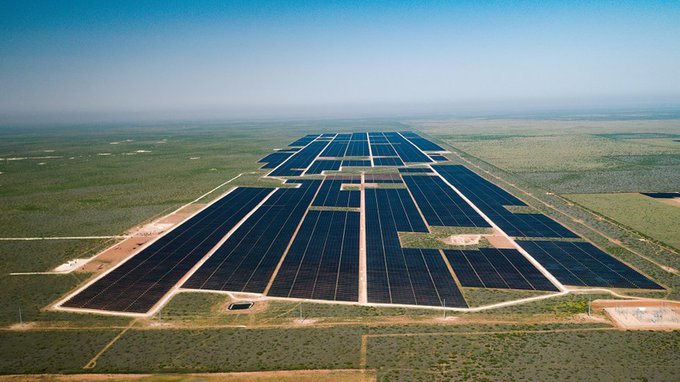|
Getting your Trinity Audio player ready...
|

Ahead of the Conference of Parties (COP26) in Glasgow, the Freedom of Rights Under Sovereign (FORUS) Party is proffering pathways towards climate change adaptation and mitigation.
Manyara irene Muyenziwa, the FORUS Party President and a development practitioner in her own capacity, said sustainable development will be difficult to achieve without tackling climate change.
In an interview with Spiked Online Media, she shared her party’s vision on pathways to deal with drought, uncontrolled veld fires, artisanal mining, and reduction of greenhouse gas emissions as well as the role played by the use of renewable energy in tackling climate change.
Muyenziwa alluded to the important role played by building the resilience of communities as a major step towards climate change mitigation and adaptation.
“As FORUS Party, through our vehicle, the Manyara Irene Muyenziwa (MIM) Foundation, we saw it fit to build communities’ capacities to adapt to the vagaries of climate change by growing grassroots’ abilities to withstand the shocks of the phenomenon. Climate change has been harsh on communities. In the recent past, Zimbabwe has been grappling with the effects of El Nino that has resulted in intermittent droughts experienced in most parts of the country.
“Due to the perennial droughts, communities lost livestock and crops were destroyed resulting in hunger and famine. To withstand these shocks, we are drilling boreholes so that communities embark on irrigation projects where they will be able to grow crops for their own consumption and sell the surplus to meet other needs like paying school fees,” Muyenziwa said.
Dr. Emmanuel Katsvamutima, a development practitioner and economic consultant for FORUS Party said climate change causes untold suffering to communities when its disastrous impacts hit them when they are least prepared for it.
“The memories of the devastating impacts of Cyclone Idai is still fresh on people’s minds. You will recall that over 100,000 people in Malawi, Mozambique and Zimbabwe are still living in destroyed or damaged homes and makeshift shelters, while critical infrastructure including roads, water supplies, and schools are yet to be repaired, making it difficult for people to access vital services or get back to work, according to a recent report produced by Oxfam. It also shows that 9.7 million people across the three countries remain in desperate need of food aid as a result of cyclones, floods, drought and localised conflict.
“To avoid such destruction and loss of livelihood in future, it is important to have functional, up-to-date early warning systems. As FORUS Party, we also urge the establishment of an efficient civil protection system through robust cooperation among the government, civil society and development practitioners, among other stakeholders,” Dr. Katsvamutima said.
FORUS Party called for increased investment in renewable energy. The party has already demonstrated its ability in this sector through its solar-powered boreholes across the country.
A renowned economist, Dr. Tinashe Eric Muzamhindo, praised FORUS Party for investment in a biogas programme for rural areas.
“I was impressed when I learnt that FORUS Party is working on a massive biogas project for rural areas. Biogas works well in the rural areas since the digesters can be fed with cow dung or human waste to come up with a clean gas used for lighting homesteads or powering computers and fridges, for example,” Dr. Muzamhindo said.
According to a recent report by the British Embassy, Zimbabwe clean energy portfolio could include solar, hydro, biomass, geothermal, and wind, with solar and hydro potentially the largest renewable energy sources.
FORUS Party also encouraged the prevention of veld fires whose impacts are multifaceted and a threat to the biophysical, social and economic environment because of their trail of destruction that cuts across all sectors of the economy.
Honourable Mangaliso Ndlovu, the Minister of Environment revealed that wildfires constitute 10% of the world’s emissions and nearly half of this is related to Southern Africa.
In Southern Africa alone, approximately 170 million hectares of forests and grasslands are burnt each year. Zimbabwe is not spared from the challenge, burning an average of 1.5 million hectares and in the process producing over 30 million tonnes of carbon emissions which is about 7% of the country’s emissions per year.
The annual average burnt area from 2010 – 2020 was 1 million hectares. An average of 60% of the total burnt area has been under the A1 and A2 resettlement areas. The minister said of the 18,000 A2 farmers, only about 400 have 99-year leases, which leases have specific clauses on environmental protection. This creates a possibility of a massive information gap on the responsibilities of farmers in their properties.
“There is a need for stakeholders to educate citizens particularly rural-based farmers on the dangers of veld fires. As FORUS Party, we preach about climate change and the dangers of veld fires during our campaign rallies,” Julius Nyati, a member of FORUS Party from Kadoma told this publication.
Summit is to do with how countries have shown resilience on climate change adaptation and mitigation measures.
Lawrence Mashungu, an expert with the Climate Change Management Department called for the full implementation of the Paris Agreement in 2020 in order to achieve their Nationally Determined Contributions so as to achieve the Low Emission Development Pathway for the world.
Zimbabwe is working on Nationally Determined Contributions (NDCs) in tandem with the Paris Agreement on Climate Change. It is implementing innovative guides that spearhead the green economy as well as specifications on how various institutions are embracing the main thrust of reducing carbon emissions.
A constant rise of carbon emissions among other greenhouse gases has been triggering atmospheric temperatures to rise beyond the level of normalcy and a rapid change in weather patterns has been inevitable.
Given such a predicament, countries across the world should reach a consensus on low carbon emissions outside the bracket of different political ideologies. The Global target to completely reduce emissions will be certain by 2050.





